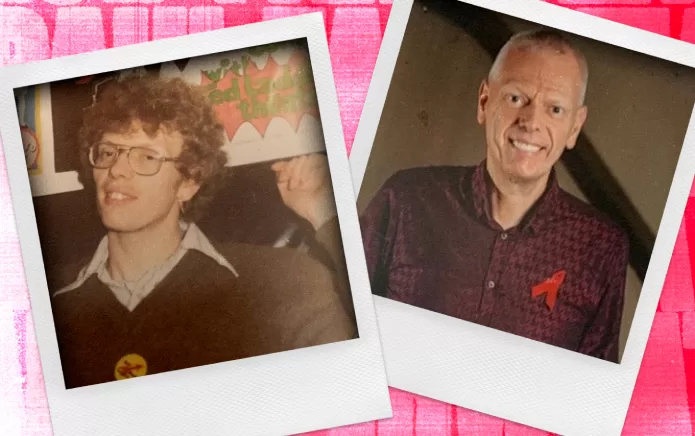Five years after Manchester AIDS Line launched, it became the George House Trust that most people know it as today. The charity continues to provide support, advice and advocacy for people living with HIV, something Fairweather says is “still needed” despite how much attitudes and healthcare has come. “I think there’s still issues of people being scared to come out in smaller communities, I think particularly people experience more than one form discrimination,” he continues. “The stigma is still out there, but the stigma is more damaging than the disease.”
“When I was first diagnosed, I took about 12 tablets a day and I now take one tablet a day. I see my consultant every six months. My health is completely fine, so it’s completely different, but I still know too many people living with HIV who are isolated, they don’t know anybody, they’ve stopped dating,” adds Fairweather. “So I think it’s the stigma, even within the gay community, that’s still really damaging for some people. Not everyone knows about U=U or believes U=U and there’s still lots of issues about people not knowing the facts about HIV transmission these days.”
As part of his ongoing campaign work, Fairweather continues to work with George House Trust as its Positive Speakers project lead. His decades of activism recently saw him awarded with an MBE which, he says, makes him “hopeful” that he can continue teaching people about LGBTQIA+ history so the mistakes of the past are never repeated: “I think it’s really important that we learn from history… I talk to a lot of young people and they’re quite astonished by what the situation was like back then. But it’s not that long ago and things can change again, so people need to be really vigilant.”
